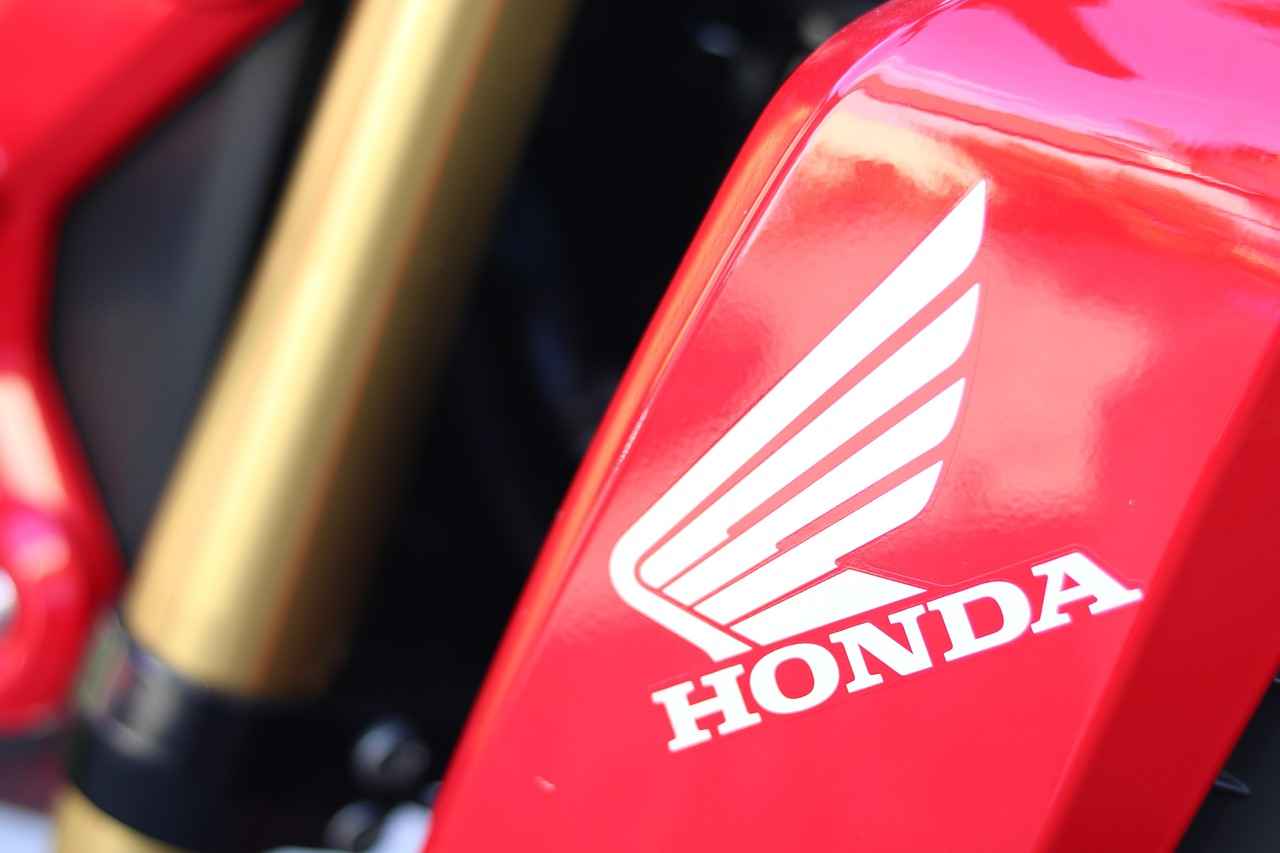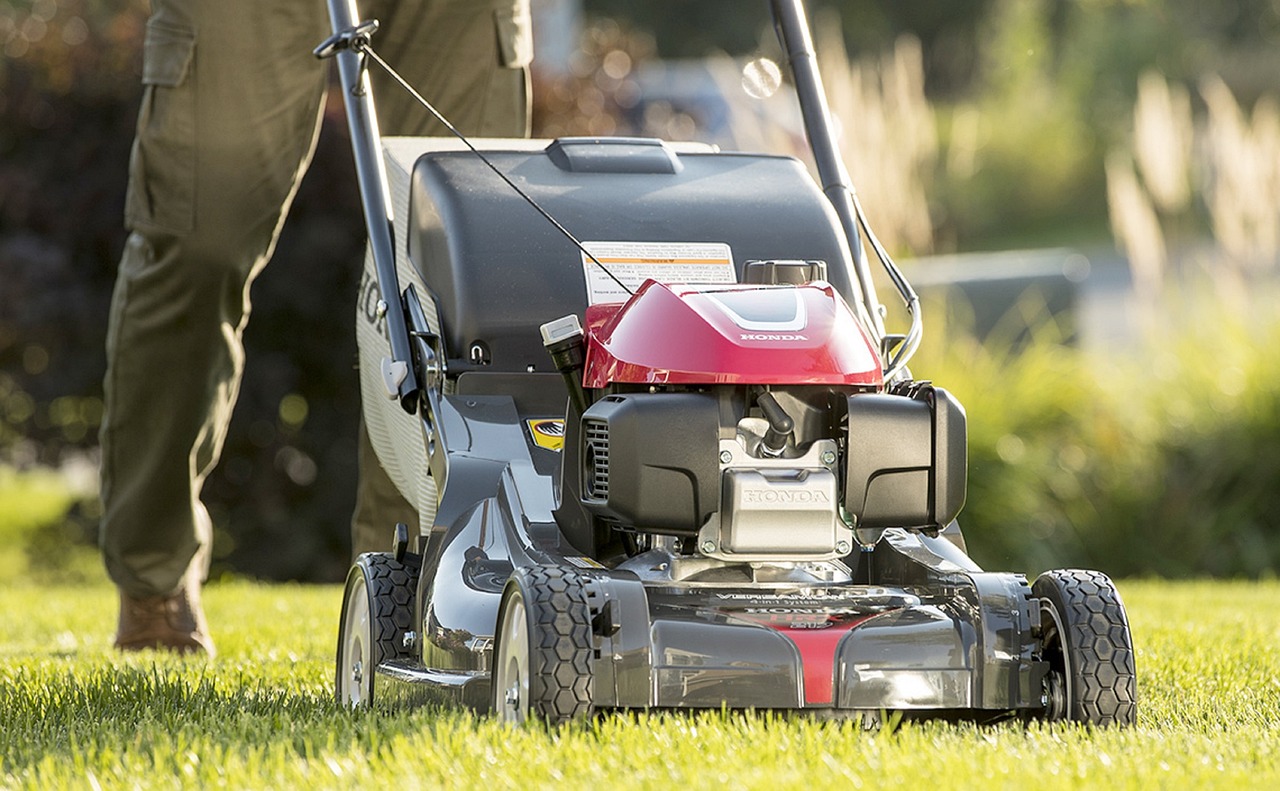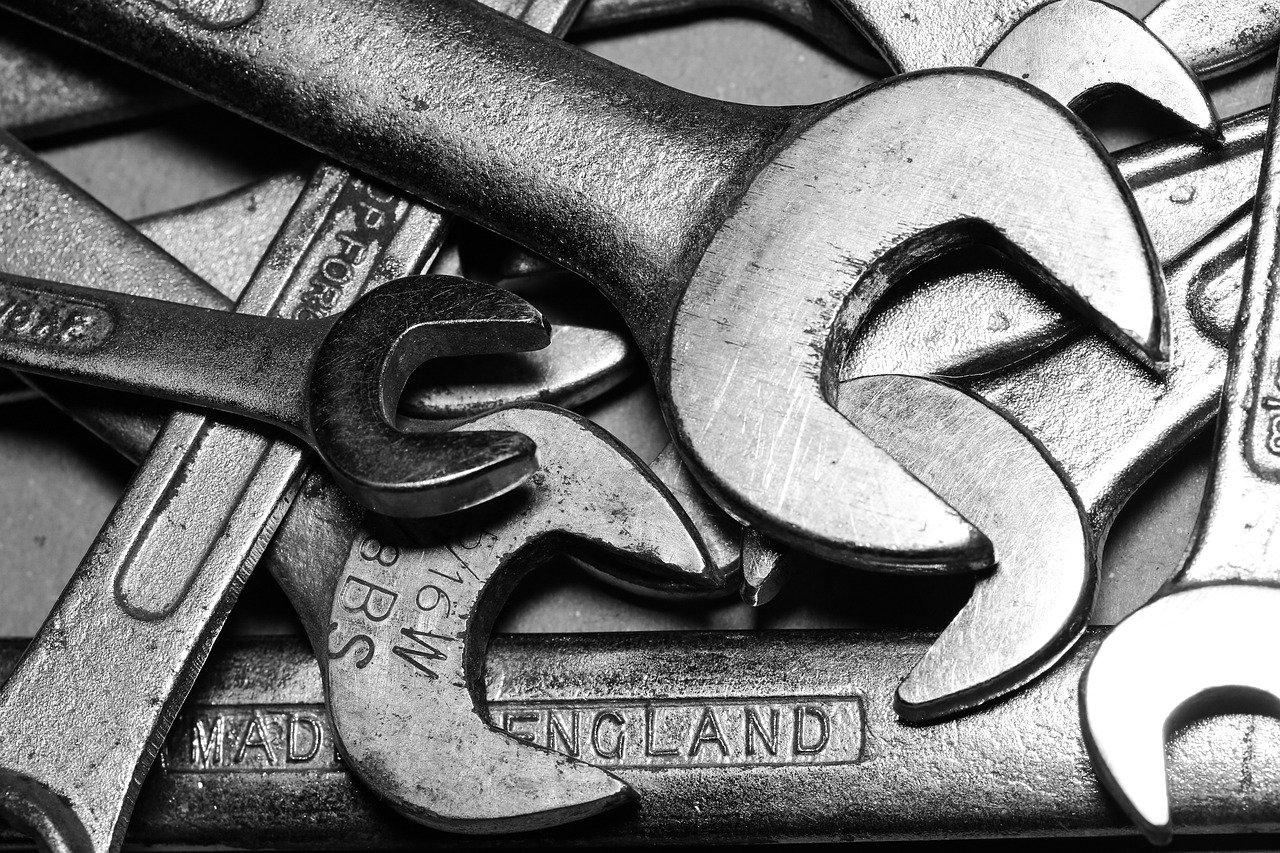The Honda Accord has long been a staple in the midsize sedan market, renowned for its reliability and performance. This article delves into the various aspects that contribute to the Honda Accord’s reputation, including its engineering, maintenance costs, and customer satisfaction. By providing a comprehensive overview, potential buyers and automotive enthusiasts can make informed decisions.
The Honda Accord’s reliability stems from its engineering excellence and the use of high-quality materials. Over the years, the Accord has consistently demonstrated dependable performance, appealing to a broad spectrum of drivers. Its reputation is not merely anecdotal; it is backed by extensive consumer feedback and performance testing.
When assessing the reliability of the Honda Accord, it is vital to compare it with competitors such as the Toyota Camry and Nissan Altima. These comparisons highlight the Accord’s strengths in terms of durability and owner satisfaction.
Numerous automotive publications and consumer reports provide valuable insights into the Honda Accord’s reliability. For instance, the Accord frequently receives high ratings from organizations such as Consumer Reports and J.D. Power, which evaluate long-term performance based on rigorous testing and user feedback.
Consumer Reports consistently ranks the Honda Accord among the top vehicles for reliability. This ranking reflects not only owner satisfaction but also the model’s ability to endure wear and tear over the years.
According to J.D. Power surveys, the Honda Accord often scores exceptionally well in terms of vehicle dependability. This data indicates a low incidence of issues among owners, reinforcing the Accord’s reputation as a trustworthy vehicle.
Owner testimonials provide practical insights into the Honda Accord’s reliability. Many drivers report minimal issues and high satisfaction levels, underscoring the vehicle’s durability and performance over time.
While the Honda Accord is celebrated for its reliability, it is not without its challenges. Understanding common issues can help prospective buyers make informed choices.
Some older Honda Accord models have reported engine-related issues, which can raise concerns about performance and longevity. It’s crucial to research specific model years for a clearer picture.
Transmission problems have been noted in certain earlier generations of the Honda Accord. Prospective buyers should investigate specific models to understand the reliability of the transmission system.
Understanding the maintenance costs associated with the Honda Accord is essential for potential buyers, as it directly impacts the overall ownership experience.
Regular maintenance, including oil changes and tire rotations, is generally affordable for the Honda Accord. This contributes to its reputation for economical ownership.
While the Honda Accord is reliable, potential long-term repair costs should be considered. Typically, these costs are lower than average compared to other midsize sedans, making the Accord a financially sound choice.
The longevity of the Honda Accord is a critical factor in its reliability assessment. Many owners report high mileage without significant issues, making it a smart investment.
A well-maintained Honda Accord can often exceed 200,000 miles, showcasing its durability and engineering quality that supports long-term ownership.
Factors such as regular maintenance, driving habits, and environmental conditions can significantly influence the lifespan of a Honda Accord. Proactive care is essential for maximizing its longevity.

What Makes the Honda Accord a Reliable Choice?
The Honda Accord has long been celebrated for its remarkable reliability, a trait that has been cultivated over several decades. This reputation is not merely a product of marketing; it is rooted in engineering excellence, the use of high-quality materials, and a track record of consistent performance that resonates with a diverse group of drivers. This article delves into the specific aspects that contribute to the Honda Accord’s reliability, making it a top choice for potential buyers.
One of the primary factors that elevate the Honda Accord’s status as a reliable vehicle is its exceptional engineering and design. Honda invests significantly in research and development to ensure that each model is built to last. The Accord’s robust frame and advanced safety features not only enhance its longevity but also provide peace of mind for drivers and passengers alike.
The choice of quality materials in the manufacturing process further underpins the Honda Accord’s reliability. From the engine components to the interior finishes, Honda ensures that every element meets stringent quality standards. This commitment to craftsmanship helps reduce the likelihood of wear and tear, contributing to the vehicle’s overall durability.
Honda Accord models are renowned for their consistent performance across various driving conditions. Whether navigating city streets or embarking on long highway journeys, the Accord delivers a smooth and responsive driving experience. Many owners report that their vehicles maintain excellent fuel efficiency and minimal maintenance issues even after several years of use.
Another testament to the Honda Accord’s reliability is the overwhelmingly positive feedback from owners. Surveys and reviews frequently highlight high levels of owner satisfaction, with many drivers praising the Accord for its dependability and low maintenance costs. Such insights reflect the real-world experiences of those who have chosen the Accord as their vehicle of choice.
When assessing the reliability of the Honda Accord, it is essential to consider its standing against competitors like the Toyota Camry and Nissan Altima. While these models also have strong reliability records, the Accord often edges out in terms of long-term durability and owner loyalty. This comparison highlights the Accord’s unique position in the midsize sedan segment.
In addition to its reliability, the Honda Accord is known for its cost efficiency. Owners can expect lower long-term repair costs compared to other vehicles in its class. Routine maintenance, such as oil changes and brake replacements, is typically affordable, making the Accord a budget-friendly option for many drivers.
In summary, the Honda Accord stands out as a reliable choice due to its exceptional engineering, quality materials, consistent performance, and positive owner feedback. Its long-term cost efficiency further enhances its appeal, making it a smart investment for those seeking a dependable midsize sedan. With a legacy built on reliability, the Honda Accord continues to be a favored option for drivers who prioritize longevity and performance in their vehicles.

How Does the Honda Accord Compare to Competitors?
When considering a midsize sedan, reliability is a crucial factor for many buyers. The Honda Accord has established itself as a leader in this category, but how does it stack up against its main competitors, the Toyota Camry and Nissan Altima? By examining various aspects such as performance, owner satisfaction, and reliability ratings, we can gain a clearer understanding of where the Accord stands in the market.
The performance of a vehicle plays a significant role in its overall reliability perception. The Honda Accord is known for its smooth ride, responsive handling, and efficient engines. In comparison:
- Toyota Camry: Offers a comfortable ride with a reputation for robust engine performance, but some drivers report that it can feel less sporty than the Accord.
- Nissan Altima: Known for its agile handling and available all-wheel drive, it often appeals to those seeking a more engaging driving experience.
While all three vehicles provide a reliable driving experience, the Honda Accord often receives praise for its balance of performance and comfort, making it a favorite among many drivers.
Reliability ratings from reputable sources can provide valuable insights into the long-term performance of these vehicles. According to Consumer Reports, the Honda Accord consistently ranks high in reliability, often outpacing both the Camry and Altima. This is supported by:
- J.D. Power: Surveys indicate that Accord owners report fewer issues compared to their counterparts with the Camry and Altima, highlighting its dependability.
- Owner Satisfaction: Feedback from Honda Accord owners often reflects a high level of satisfaction, particularly regarding the car’s durability and low maintenance costs.
Despite its strong reputation, the Honda Accord is not without its challenges. Some common issues reported by owners include:
- Engine Concerns: Certain older models have faced engine-related problems, which can affect performance over time.
- Transmission Trouble: Earlier generations of the Accord have had transmission issues, making it essential for buyers to research specific model years.
In contrast, the Toyota Camry has its own set of issues, including some concerns about its infotainment system, while the Nissan Altima has faced criticism for its CVT (continuously variable transmission) performance.
Understanding maintenance costs is vital for potential buyers. The Honda Accord is known for its affordable maintenance and lower long-term repair costs compared to the competition. Here’s a breakdown:
| Vehicle | Average Annual Maintenance Cost |
|---|---|
| Honda Accord | $400 |
| Toyota Camry | $450 |
| Nissan Altima | $500 |
This table illustrates that the Honda Accord generally incurs lower maintenance costs, making it a more economical choice for long-term ownership.
In summary, when evaluating the reliability of the Honda Accord against competitors like the Toyota Camry and Nissan Altima, it becomes clear that the Accord holds a strong position. With its impressive performance, high reliability ratings, and lower maintenance costs, it remains a top choice for many drivers seeking a dependable midsize sedan.
Reliability Ratings from Trusted Sources
The reliability of the Honda Accord is a topic of great interest among potential buyers and automotive enthusiasts alike. Various automotive publications and consumer reports provide reliability ratings for the Honda Accord, offering insights into its long-term performance and durability based on extensive testing and user feedback. This article delves deeper into these ratings to provide a comprehensive understanding of why the Accord is often regarded as a dependable choice in the midsize sedan market.
When it comes to reliability, the Honda Accord consistently receives high marks from several reputable sources. These ratings are derived from a combination of expert assessments and real-world owner experiences, making them a valuable resource for anyone considering this vehicle.
Consumer Reports has a long-standing reputation for evaluating vehicle reliability through rigorous testing and owner surveys. The Honda Accord often ranks among the top vehicles in its class, reflecting its owner satisfaction and ability to endure wear and tear. In recent reports, the Accord has been praised for its minimal maintenance needs and high resale value, making it a smart investment for buyers.
J.D. Power conducts annual surveys that assess vehicle dependability based on owner feedback. The Honda Accord frequently scores well in these surveys, indicating strong reliability and a low incidence of issues among owners. This data not only highlights the Accord’s performance but also its customer loyalty, as many owners return to purchase newer models.
Owner testimonials provide an authentic perspective on the practical reliability of the Honda Accord. Many drivers report that their vehicles have exceeded 200,000 miles with proper maintenance, showcasing the Accord’s durability. Common praises include its smooth ride, fuel efficiency, and low repair costs, all contributing to a positive ownership experience.
To understand the Honda Accord’s reliability in context, it is essential to compare it with competitors such as the Toyota Camry and Nissan Altima. While all three vehicles are known for their reliability, the Accord often edges out the competition in terms of overall performance and owner satisfaction ratings from both Consumer Reports and J.D. Power.
- Engineering Excellence: Honda’s commitment to quality engineering contributes significantly to the Accord’s reliability.
- Quality Materials: The use of high-quality materials in manufacturing enhances the vehicle’s durability.
- Regular Maintenance: Adhering to a proper maintenance schedule is crucial for longevity and reliability.
In summary, the Honda Accord’s reliability ratings from trusted sources like Consumer Reports and J.D. Power, combined with positive owner experiences, solidify its reputation as a dependable midsize sedan. Potential buyers can feel confident in choosing the Accord, knowing it has consistently performed well in reliability assessments and has garnered a loyal following among drivers.
Consumer Reports Insights
The Honda Accord has long been celebrated for its reliability, and this reputation is consistently reinforced by various automotive assessments, including insights from Consumer Reports. This article delves into why the Honda Accord stands out in terms of reliability, backed by data and owner experiences.
One of the primary reasons the Honda Accord is regarded as a reliable vehicle is its engineering quality. The brand’s dedication to using high-grade materials and implementing rigorous testing processes ensures that the Accord can endure the rigors of daily use. Additionally, the model’s consistent performance over the years has attracted a loyal customer base, further solidifying its status as a dependable choice.
Consumer Reports employs a comprehensive methodology to assess vehicle reliability. This includes analyzing data from surveys filled out by thousands of vehicle owners. The Honda Accord consistently scores high due to its low incidence of problems reported by owners, demonstrating owner satisfaction and a proven ability to withstand wear and tear.
According to recent data from Consumer Reports, the Honda Accord has consistently ranked among the top vehicles in its class for reliability. In fact, it often earns a score of 90 or above on a scale of 100, indicating exceptional reliability compared to its peers. This high rating reflects not only the durability of the vehicle but also the overall satisfaction of its drivers.
Owner testimonials reveal a lot about the Honda Accord’s reliability. Many drivers report that their vehicles have surpassed 200,000 miles with minimal issues. These real-world experiences highlight the Accord’s ability to maintain performance and comfort over long periods, making it a favorite among those who prioritize longevity in their vehicle choice.
When placed alongside competitors like the Toyota Camry and Nissan Altima, the Honda Accord often comes out on top in reliability ratings. While all three vehicles are known for their dependability, the Accord frequently leads due to its combination of performance, maintenance costs, and positive owner feedback.
Despite its strong reputation, some owners have reported issues with specific model years of the Honda Accord, particularly concerning engine and transmission problems. However, these issues are generally less frequent than in competing models, and many owners find that regular maintenance can mitigate potential problems.
Understanding the maintenance costs associated with the Honda Accord is crucial for potential buyers. Routine services, such as oil changes and brake replacements, tend to be affordable compared to other midsize sedans. This affordability contributes to the overall value of owning a Honda Accord, as lower maintenance costs enhance its appeal.
With proper care, many Honda Accord owners report their vehicles lasting well beyond 200,000 miles. Factors such as driving habits, regular maintenance, and environmental conditions play significant roles in determining the lifespan of the vehicle. Owners who adhere to recommended maintenance schedules often enjoy a longer-lasting, reliable car.
J.D. Power Rankings
The Honda Accord has long been recognized as a leader in the midsize sedan market, and its reliability is a key factor in this reputation. One of the most trusted sources of information on vehicle dependability is J.D. Power, which conducts extensive surveys to gather data from vehicle owners across the country. The findings from these surveys provide valuable insights into how well vehicles perform over time, and the Honda Accord consistently ranks high in these assessments.
J.D. Power rankings are crucial for potential buyers as they reflect real-world experiences of vehicle owners. These surveys assess various factors, including:
- Dependability: How often do owners experience issues with their vehicles?
- Owner Satisfaction: Are owners happy with their purchase?
- Performance: How well does the vehicle perform in daily use?
When it comes to the Honda Accord, the data from J.D. Power surveys often indicates that this vehicle excels in all these areas, making it a smart choice for those seeking a reliable sedan.
According to the latest J.D. Power surveys, the Honda Accord has been recognized for its strong reliability and low incidence of issues among owners. This is significant because it means that owners can expect fewer repairs and a smoother ownership experience. In fact, the Accord frequently receives high marks in the Initial Quality Study, which evaluates new vehicles in their first 90 days of ownership.
When comparing the Honda Accord to its competitors, such as the Toyota Camry and Nissan Altima, the J.D. Power rankings provide a clear picture of its standing. The Accord often outperforms these rivals in terms of reliability ratings, making it a top contender for those prioritizing dependability.
The high ratings from J.D. Power not only enhance the Honda Accord’s reputation but also influence resale value. Vehicles with strong dependability ratings tend to retain their value better over time. This means that buyers can expect a good return on their investment when it comes time to sell or trade in their Accord.
Owner testimonials collected by J.D. Power highlight the satisfaction that many Honda Accord drivers experience. Many report minimal issues and express contentment with the vehicle’s performance and comfort. This real-world feedback reinforces the positive rankings and underscores the Accord’s standing as a reliable choice.
In summary, the Honda Accord’s consistent high rankings in J.D. Power surveys reflect its reliability and overall owner satisfaction. For potential buyers, these insights are invaluable when making a decision on a midsize sedan. With its proven track record, the Honda Accord stands out as a dependable option in a competitive market, ensuring that drivers can enjoy a smooth and worry-free ownership experience.
Real-World Owner Experiences
The Honda Accord has long been celebrated for its reliability, but what do real-world owners have to say about their experiences? Owner testimonials and reviews provide invaluable insights into the practical reliability of the Honda Accord, highlighting both common issues and overall satisfaction among drivers. This section delves into the experiences shared by Accord owners, revealing a wealth of information that can guide potential buyers.
Many Honda Accord owners express a high level of satisfaction with their vehicles, often citing dependability as a key reason for their loyalty to the brand. Reviews frequently mention that the Accord’s performance remains consistent over time, with many owners reporting minimal issues even after several years of ownership. This feedback aligns with the Accord’s reputation for longevity and durability.
While the Honda Accord is generally lauded for its reliability, some owners have reported specific issues that potential buyers should be aware of:
- Engine Problems: Some older models have experienced engine troubles, including excessive oil consumption and timing belt failures. Owners recommend regular maintenance to mitigate these risks.
- Transmission Concerns: A few drivers have noted transmission glitches, particularly in earlier generations. It’s advisable to check the history of specific model years for any reported issues.
- Electrical System Issues: Some owners have encountered problems with electrical components, such as malfunctioning infotainment systems or sensor failures.
Despite the reported issues, the overall sentiment among Honda Accord owners remains overwhelmingly positive. Many drivers highlight the vehicle’s fuel efficiency, comfortable ride, and spacious interior as significant advantages. In fact, numerous testimonials reflect that owners would choose the Accord again, emphasizing its value for money and reliability.
Long-term owners often share stories of their Accords reaching impressive mileage milestones. Many report driving their vehicles well beyond 200,000 miles with proper maintenance, showcasing the Accord’s durability. This longevity is a testament to Honda’s engineering and the quality of materials used in the manufacturing process.
When comparing the Honda Accord to competitors like the Toyota Camry and Nissan Altima, many owners believe the Accord holds a slight edge in terms of driving experience and reliability. Testimonials often highlight the Accord’s responsive handling and superior comfort, making it a favorite among midsize sedan enthusiasts.
One common theme in owner reviews is the importance of routine maintenance. Accord owners emphasize that staying on top of scheduled services can significantly enhance the vehicle’s reliability and performance. Simple tasks such as oil changes, tire rotations, and brake inspections are frequently mentioned as crucial for maintaining the Accord’s longevity.
In conclusion, real-world owner experiences with the Honda Accord paint a picture of a reliable and satisfying vehicle choice. While there are some common issues reported, the overwhelming majority of owners express a strong sense of satisfaction and loyalty to the brand. For potential buyers, understanding these real-world insights can aid in making an informed decision about investing in a Honda Accord.

What Are Common Issues with the Honda Accord?
The Honda Accord, renowned for its reliability and performance, is a popular choice among car buyers. However, like any vehicle, it is not without its challenges. Understanding the common issues associated with the Honda Accord can empower potential buyers to make informed decisions when considering this midsize sedan. Below, we delve into the frequent concerns that owners have reported, providing a comprehensive overview.
While the Honda Accord is celebrated for its durability, certain issues may arise, especially in older models. Recognizing these problems can help prospective buyers gauge the long-term ownership experience.
Engine issues are among the most significant concerns reported by Honda Accord owners. Some older models, particularly those manufactured in the early 2000s, have been known to experience problems such as:
- Oil leaks: These can lead to decreased performance and potential engine damage if not addressed promptly.
- Excessive oil consumption: Some owners have noted that their vehicles require more frequent oil changes than expected.
- Engine misfires: This can affect acceleration and overall vehicle performance.
Transmission issues can also be a concern for Honda Accord owners, particularly in earlier generations. Common symptoms include:
- Slipping gears: This can occur when the transmission struggles to stay in gear, leading to a jerky driving experience.
- Delayed shifting: Some drivers report a noticeable lag when shifting from park to drive, which can be frustrating.
- Unusual noises: Grinding or whining sounds during gear changes may indicate underlying transmission problems.
Electrical problems can also plague certain Honda Accord models. These issues may manifest as:
- Faulty sensors: Malfunctioning sensors can trigger warning lights on the dashboard, leading to unnecessary concern.
- Battery drain: Some owners have reported issues with the car’s electrical system draining the battery faster than usual.
Another area of concern is the suspension and steering systems. Owners have noted:
- Worn-out struts: This can lead to a bumpy ride and reduced handling capabilities.
- Steering issues: Difficulty in steering or a loose steering wheel can indicate problems with the steering components.
Understanding the potential repair costs associated with these common issues is crucial for prospective buyers. Generally, maintenance for the Honda Accord is considered affordable, but costs can vary based on the specific problem:
- Engine repairs: These can range significantly, but addressing issues early can prevent more costly repairs down the line.
- Transmission repairs: These are typically more expensive, so it’s advisable to stay on top of regular maintenance.
In summary, while the Honda Accord is a reliable vehicle, being aware of common issues can help prospective buyers make informed decisions. Regular maintenance and prompt attention to any warning signs can enhance the ownership experience and mitigate potential problems.
Engine Problems
The Honda Accord has long been celebrated for its reliability and performance in the midsize sedan market. However, like any vehicle, it has its share of issues that potential buyers should be aware of. In this section, we will delve into the reported in some Honda Accord models, particularly focusing on older versions, and what this means for prospective owners.
While the Honda Accord is generally known for its durability, certain models, especially those from earlier production years, have faced engine-related issues. These problems can lead to concerns about both performance and the vehicle’s overall longevity.
- Oil Consumption Problems: Some older Honda Accord models have been reported to consume oil at an accelerated rate. This can lead to the need for frequent oil top-ups and may indicate underlying engine wear.
- Engine Misfires: Misfiring can occur due to various reasons, including faulty spark plugs or ignition coils. This issue not only affects performance but can also lead to increased emissions.
- Timing Belt Failures: The timing belt is crucial for engine operation. In some Accords, particularly those with higher mileage, failure of the timing belt can lead to severe engine damage.
- Overheating: Overheating can be caused by a variety of factors, including coolant leaks or a failing water pump. This issue can lead to significant engine damage if not addressed promptly.
The performance of a Honda Accord can be significantly affected by these engine issues. Drivers may experience reduced power, decreased fuel efficiency, and overall diminished driving enjoyment. Furthermore, unresolved engine problems can lead to costly repairs and a shortened lifespan of the vehicle.
For those looking to purchase a used Honda Accord, it is essential to conduct thorough research on the specific model year. Here are some practical insights:
- Check Maintenance Records: A well-documented maintenance history can indicate how well the previous owner cared for the vehicle. Regular oil changes and timely repairs can mitigate many issues.
- Consider a Pre-Purchase Inspection: Having a trusted mechanic inspect the car before purchase can uncover potential engine problems, saving you from unexpected repair costs.
- Research Recalls: Some models may have had recalls related to engine issues. Checking if the vehicle has had necessary repairs performed can be beneficial.
While the Honda Accord is generally a reliable vehicle, understanding the potential engine problems, especially in older models, is crucial for informed decision-making. By being aware of these issues and taking proactive steps, buyers can enjoy the benefits of owning a Honda Accord without facing significant drawbacks.
Transmission Concerns
The Honda Accord is a popular midsize sedan known for its reliability and performance. However, like any vehicle, it has its share of issues. One of the more significant concerns reported by owners revolves around transmission problems, particularly in earlier models. Understanding these issues is crucial for potential buyers and current owners alike.
Transmission problems can manifest in various ways, ranging from minor issues to more serious concerns that can affect the vehicle’s drivability. Some common transmission-related complaints from Honda Accord owners include:
- Delayed Shifting: Many drivers have reported experiencing a lag when shifting gears, which can be particularly noticeable during acceleration.
- Slipping Gears: Some models may exhibit a tendency to slip out of gear unexpectedly, leading to a loss of power and control.
- Unusual Noises: Grinding or whining noises during gear changes can indicate underlying transmission issues that need to be addressed.
- Fluid Leaks: Transmission fluid leaks can lead to low fluid levels, which can severely impact transmission performance and longevity.
Transmission issues have primarily been noted in earlier generations of the Honda Accord, particularly models manufactured between the late 1990s and early 2000s. It’s essential for potential buyers to research specific model years, as some may have a better track record than others. For instance, the 2003 and 2004 models have been highlighted for having more frequent transmission problems compared to their successors.
If you’re considering purchasing a used Honda Accord, it’s vital to perform a thorough inspection and consider the following:
- Service History: Request the vehicle’s service records to check for any previous transmission repairs or issues.
- Test Drive: Take the car for a test drive to assess its shifting performance. Pay attention to any unusual noises or delays in gear changes.
- Fluid Condition: Inspect the transmission fluid for color and consistency. Dark or burnt fluid can indicate potential problems.
Addressing transmission issues early can save you from costly repairs down the line. Here are some steps to consider:
- Regular Maintenance: Adhering to the manufacturer’s recommended maintenance schedule can help prevent transmission issues. Regular fluid changes and inspections are crucial.
- Professional Diagnosis: If you suspect transmission problems, consult a qualified mechanic for a comprehensive diagnosis. Early intervention can often resolve issues before they escalate.
- Consider Extended Warranties: If purchasing a used model, consider an extended warranty that covers transmission repairs, providing peace of mind against potential issues.
Ignoring transmission problems can lead to more significant issues and costly repairs. A malfunctioning transmission can affect the vehicle’s overall performance and safety, making it essential to address concerns promptly. Additionally, resale value may decline if a car has a history of transmission issues, impacting your investment.
In conclusion, while the Honda Accord remains a reliable choice for many drivers, being aware of potential transmission concerns is crucial. By conducting thorough research and staying informed, you can make a more educated decision when purchasing or maintaining your Honda Accord.

What Are the Maintenance Costs for a Honda Accord?
Understanding the maintenance costs associated with the Honda Accord is vital for potential buyers, as it directly impacts the overall ownership experience and budget. The Honda Accord is renowned for its reliability, but knowing the financial implications of maintaining this vehicle can help you make an informed decision.
Routine maintenance is a significant aspect of owning a Honda Accord. Regular services, such as oil changes, brake inspections, and tire rotations, are generally affordable. Here’s a breakdown of typical routine maintenance costs:
| Service Type | Estimated Cost | Frequency |
|---|---|---|
| Oil Change | $40 – $70 | Every 5,000 – 7,500 miles |
| Tire Rotation | $20 – $50 | Every 5,000 – 7,500 miles |
| Brake Inspection | $100 – $150 | Annually |
| Battery Replacement | $100 – $200 | Every 3 – 5 years |
These routine costs are relatively low, contributing to the Accord’s reputation for being an economical vehicle to maintain.
While the Honda Accord is known for its reliability, potential buyers should also consider long-term repair costs. Generally, these costs are lower than average compared to other midsize sedans, making the Accord a wise investment. Common repairs and their estimated costs include:
- Brake Pad Replacement: $150 – $300
- Transmission Fluid Change: $100 – $200
- Alternator Replacement: $400 – $600
- Water Pump Replacement: $300 – $500
These repairs, while they may seem significant, are infrequent and often manageable for Accord owners.
Several factors can influence the overall maintenance costs of a Honda Accord:
- Driving Habits: Aggressive driving can lead to increased wear and tear, resulting in higher maintenance costs.
- Location: Maintenance costs can vary based on geographic location, with urban areas often having higher service fees.
- Model Year: Newer models may have different maintenance requirements and costs compared to older versions.
Being proactive about maintenance can significantly reduce long-term costs and enhance the vehicle’s lifespan.
In addition to maintenance costs, potential buyers should consider insurance premiums, which can vary based on factors like driving history and location. The Honda Accord typically enjoys lower insurance rates compared to some competitors, making it an attractive option for budget-conscious buyers.
Overall, while the Honda Accord does incur maintenance costs, these are generally manageable and contribute to a positive ownership experience. By understanding these costs, you can better prepare for the financial aspects of owning a Honda Accord.
Routine Maintenance Expenses
The Honda Accord is widely recognized for its reliability, and part of this reputation stems from its affordable maintenance costs. Regular upkeep is essential for ensuring the longevity and performance of any vehicle, and the Accord stands out in this regard. This section delves into the associated with owning a Honda Accord, focusing on the key services that contribute to its economical ownership.
- Oil Changes: Regular oil changes are crucial for engine health. The Honda Accord typically requires an oil change every 5,000 to 7,500 miles, depending on your driving habits and oil type. The cost ranges from $30 to $70, making it a manageable expense for most owners.
- Tire Rotations: To promote even tire wear, rotating the tires every 5,000 to 7,500 miles is recommended. This service usually costs between $20 and $50. Proper tire maintenance not only extends tire life but also enhances fuel efficiency.
- Brake Inspections: Regular brake checks are essential for safety. While the cost can vary based on whether you need just an inspection or full brake service, routine checks help catch issues early, ultimately saving money.
- Fluid Checks: Routine checks of fluids such as coolant, brake fluid, and transmission fluid are vital. While these checks may not always incur a cost, topping off or replacing fluids can range from $15 to $100, depending on what needs attention.
When compared to competitors like the Toyota Camry and Nissan Altima, the Honda Accord generally holds its ground in terms of maintenance costs. Many owners report that the affordability of routine services contributes significantly to the overall cost of ownership. In fact, studies show that Honda vehicles, including the Accord, often have lower long-term maintenance expenses than their rivals, making them a smart choice for budget-conscious consumers.
- Enhanced Longevity: Regular maintenance can significantly extend the lifespan of your vehicle. Many Honda Accord owners report reaching over 200,000 miles with proper care.
- Improved Fuel Efficiency: Keeping your Accord in top shape ensures optimal performance, which can lead to better fuel economy. This is particularly important as fuel prices fluctuate.
- Higher Resale Value: A well-maintained Honda Accord tends to retain its value better than those with a spotty maintenance history. This is an important factor for many potential buyers.
To keep maintenance expenses manageable, consider the following tips:
- Follow the Manufacturer’s Schedule: Adhering to the recommended maintenance schedule set by Honda can prevent costly repairs down the line.
- DIY for Minor Tasks: If you’re comfortable with basic tasks like changing oil or replacing air filters, doing it yourself can save money.
- Shop Around for Services: Compare prices from different mechanics to find the most affordable options for routine maintenance.
In summary, the Honda Accord offers an economical ownership experience, particularly when it comes to routine maintenance expenses. With affordable services, a reputation for reliability, and the potential for high resale value, the Accord remains a top choice for drivers seeking both performance and value.
Long-Term Repair Costs
The Honda Accord is often praised for its reliability and performance, making it a popular choice among midsize sedans. However, when considering any vehicle purchase, it’s crucial to look beyond initial impressions and evaluate the long-term implications of ownership. One significant aspect to consider is the , which can greatly influence the overall ownership experience.
While the Honda Accord is known for its durability, potential buyers should be aware of the associated with the vehicle. Generally, these costs are lower than average when compared to other midsize sedans. This can be attributed to several factors:
- Quality Engineering: Honda’s reputation for engineering excellence means that components are designed to last, reducing the frequency of repairs.
- Availability of Parts: The widespread popularity of the Accord ensures that parts are readily available, often at competitive prices.
- Owner Maintenance: Many Accord owners report performing routine maintenance, which helps prevent costly repairs down the line.
When evaluating the Honda Accord’s , it’s beneficial to compare it with competitors such as the Toyota Camry and Nissan Altima. According to various automotive studies, the Accord often ranks favorably:
| Vehicle Model | Average Annual Repair Cost | Reliability Rating |
|---|---|---|
| Honda Accord | $400 | 4.5/5 |
| Toyota Camry | $450 | 4.4/5 |
| Nissan Altima | $500 | 4.2/5 |
Several factors can influence the long-term repair costs of a Honda Accord:
- Model Year: Newer models typically come with advanced technology that can be expensive to repair, while older models may have fewer complex systems.
- Driving Habits: Aggressive driving can lead to increased wear and tear, resulting in higher repair costs.
- Maintenance Practices: Regular maintenance can significantly reduce the likelihood of major repairs, ensuring a longer lifespan for the vehicle.
Owner testimonials provide valuable insights into the long-term repair costs associated with the Honda Accord. Many drivers report low incidences of major repairs, often attributing this to the vehicle’s robust design and reliability. Common issues, when they do arise, are often manageable and less costly than those faced by owners of competing models.
In summary, the Honda Accord stands out not only for its reliability but also for its lower-than-average long-term repair costs. This makes it a smart choice for those seeking a dependable midsize sedan. By understanding the factors that influence these costs and considering real-world owner experiences, potential buyers can make informed decisions that align with their budget and expectations.

How Long Can You Expect a Honda Accord to Last?
The Honda Accord has long been celebrated for its durability and longevity, making it a popular choice among car buyers. This article delves into the expected lifespan of the Honda Accord, highlighting key factors that contribute to its impressive longevity and offering insights for potential owners.
On average, a well-maintained Honda Accord can last over 200,000 miles. Many owners report reaching this milestone without encountering significant issues, which speaks volumes about the vehicle’s engineering and build quality. It’s not uncommon to find Accords on the road with mileage exceeding 300,000 miles, showcasing their resilience and reliability.
- Regular Maintenance: Adhering to a strict maintenance schedule is crucial. Routine oil changes, tire rotations, and brake inspections can significantly extend the life of the vehicle.
- Driving Habits: Gentle driving can reduce wear and tear on the engine and transmission. Aggressive driving can lead to premature mechanical failures.
- Environmental Conditions: Vehicles exposed to harsh weather conditions or corrosive environments may experience accelerated deterioration. Keeping the car clean and protected can mitigate these effects.
When comparing the Honda Accord to its competitors, such as the Toyota Camry and Nissan Altima, the Accord often stands out for its longevity. Many owners of these vehicles also report high mileage, but the Accord frequently receives higher reliability ratings from sources like Consumer Reports and J.D. Power.
While the Honda Accord is renowned for its reliability, it’s essential to be aware of potential issues that may arise, particularly in older models. Some common concerns include:
- Engine Problems: Some owners have reported engine issues, particularly in older models, which may affect performance and longevity.
- Transmission Concerns: Certain generations have experienced transmission problems, making it vital for potential buyers to research specific model years.
To ensure your Honda Accord reaches its maximum lifespan, consider the following tips:
- Follow the Maintenance Schedule: Stick to the manufacturer’s recommended maintenance schedule to keep your vehicle in optimal condition.
- Use Quality Parts: When repairs are necessary, opt for high-quality replacement parts to maintain performance and reliability.
- Stay Informed: Keep abreast of any recalls or service bulletins related to your model to address potential issues proactively.
Owner testimonials often highlight the Honda Accord’s ability to withstand the test of time. Many drivers express satisfaction with their vehicle’s performance over the years, citing minimal issues and a comfortable driving experience even at high mileage. This positive feedback reinforces the Accord’s reputation as a smart investment for those seeking a reliable midsize sedan.
In summary, the Honda Accord’s longevity is a significant factor in its reliability assessment. With many owners reporting high mileage without significant issues, it proves to be a smart investment for those looking for a dependable vehicle. By understanding the factors that influence the lifespan and following best practices for maintenance, you can enjoy the benefits of a long-lasting Honda Accord.
Average Lifespan of Honda Accords
The Honda Accord has long been celebrated for its remarkable durability and reliability, making it a favorite among car owners. One of the most compelling aspects of this midsize sedan is its impressive average lifespan. Many owners report that with proper care, their Honda Accords can easily surpass 200,000 miles. This statistic not only highlights the vehicle’s engineering quality but also its potential for long-term ownership.
Several factors play a crucial role in determining how long a Honda Accord can last. Understanding these elements can help potential buyers make informed decisions and maximize the lifespan of their vehicle.
- Regular Maintenance: Adhering to a consistent maintenance schedule is vital. Routine services such as oil changes, brake inspections, and tire rotations help keep the engine and other components in optimal condition.
- Driving Habits: How a driver operates their vehicle can significantly impact its longevity. Gentle acceleration, avoiding hard braking, and maintaining steady speeds can reduce wear and tear.
- Environmental Conditions: Factors such as climate, road conditions, and driving terrain can affect a vehicle’s lifespan. For instance, driving in harsh weather or on rough roads may lead to increased wear.
Many Honda Accord owners have shared their experiences regarding the vehicle’s lifespan. It’s not uncommon to find stories of Accords reaching 300,000 miles or more with diligent care. These testimonials serve as a testament to the model’s robust engineering and reliability.
Example Testimonials:- "My 2005 Honda Accord has over 250,000 miles and runs like a dream!"- "I bought my Accord used, and it still performs excellently at 220,000 miles."
To ensure that a Honda Accord reaches its maximum lifespan, owners should follow these maintenance tips:
- Stay on Schedule: Follow the manufacturer’s recommended maintenance schedule for services.
- Use Quality Parts: When replacing parts, opt for high-quality or OEM (Original Equipment Manufacturer) components.
- Monitor Fluid Levels: Regularly check and change fluids, including engine oil, transmission fluid, and coolant.
While the Honda Accord is known for its reliability, it’s important to be aware of potential issues that could arise over time. Some common problems reported by owners include:
- Engine Problems: Older models may experience engine wear, which can impact performance.
- Transmission Concerns: Some earlier models have reported transmission issues, so it’s essential to research specific years.
In summary, the Honda Accord stands out for its impressive average lifespan, often exceeding 200,000 miles with proper maintenance and care. By understanding the factors that contribute to its longevity and following essential maintenance tips, owners can enjoy many years of reliable performance from their vehicle.
Factors Influencing Longevity
The longevity of a vehicle, particularly the Honda Accord, is influenced by a variety of critical factors. Understanding these elements is essential for both current owners and potential buyers who wish to maximize the lifespan of their vehicle. In this section, we will explore how regular maintenance, driving habits, and environmental conditions play a pivotal role in determining how long a Honda Accord can last on the road.
One of the most significant factors affecting the lifespan of a Honda Accord is regular maintenance. Routine services such as oil changes, brake inspections, and tire rotations not only keep the vehicle running smoothly but also prevent minor issues from escalating into major problems. According to industry experts, vehicles that receive consistent care can last significantly longer than those that do not.
- Oil Changes: Regular oil changes are essential for keeping the engine in optimal condition.
- Fluid Checks: Monitoring and replacing fluids such as coolant and transmission fluid can prevent overheating and mechanical failures.
- Tire Maintenance: Proper tire rotation and alignment enhance safety and improve fuel efficiency.
The way a driver operates their vehicle can have a profound impact on its longevity. Driving habits such as aggressive acceleration, hard braking, and frequent short trips can accelerate wear and tear. Conversely, adopting a more cautious driving style can contribute to a longer lifespan.
- Gentle Acceleration: Smooth acceleration reduces stress on the engine and transmission.
- Consistent Speed: Maintaining a steady speed can improve fuel efficiency and reduce engine strain.
- Avoiding Short Trips: Short trips can prevent the engine from reaching optimal operating temperature, leading to increased wear.
Environmental conditions also significantly affect the longevity of a Honda Accord. Factors such as climate, road conditions, and geographical location can either hasten or slow down the aging process of the vehicle.
- Climate: Extreme temperatures can affect battery life and fluid viscosity, while high humidity can lead to corrosion.
- Road Conditions: Driving on poorly maintained roads can lead to increased wear on suspension components and tires.
- Salt Exposure: In coastal areas or regions that use salt for de-icing, vehicles are more susceptible to rust and corrosion.
In conclusion, maximizing the lifespan of a Honda Accord requires a multifaceted approach. By prioritizing regular maintenance, adopting safe driving habits, and being mindful of environmental conditions, owners can significantly enhance their vehicle’s longevity. This proactive care not only ensures a reliable driving experience but also protects the investment made in the vehicle.
Frequently Asked Questions
- How reliable is the Honda Accord?
The Honda Accord is renowned for its reliability, often ranking high in various consumer reports. Many owners report minimal issues and high satisfaction, making it a popular choice among drivers looking for a dependable vehicle.
- What are common issues with the Honda Accord?
While generally reliable, some Honda Accord models may experience engine and transmission issues, especially in older generations. It’s wise to research specific model years to understand any potential concerns.
- What are the maintenance costs associated with a Honda Accord?
Maintenance costs for the Honda Accord are typically affordable, with routine services like oil changes and tire rotations being budget-friendly. Long-term repair costs are often lower than average compared to other midsize sedans.
- How long can you expect a Honda Accord to last?
A well-maintained Honda Accord can last over 200,000 miles, showcasing its durability. Factors like regular maintenance and driving habits play a significant role in maximizing its lifespan.



